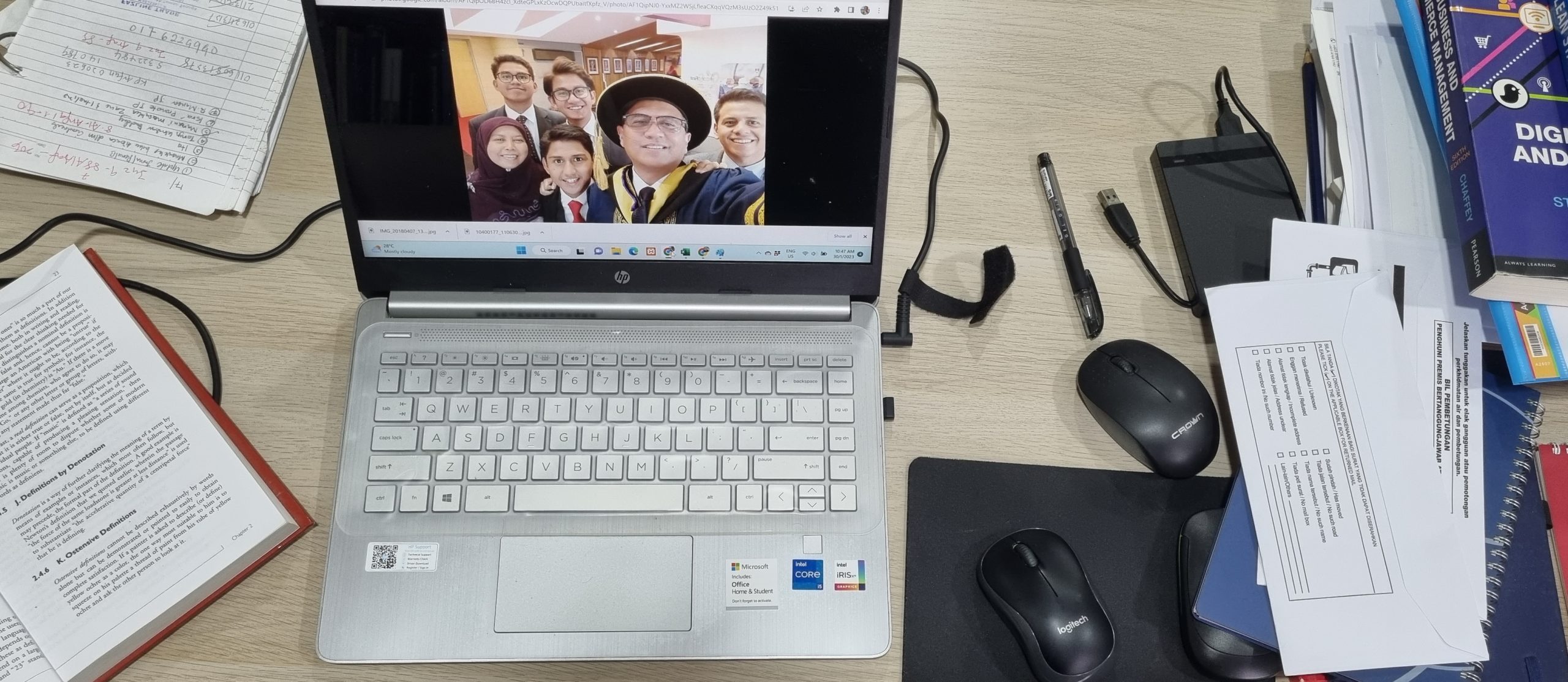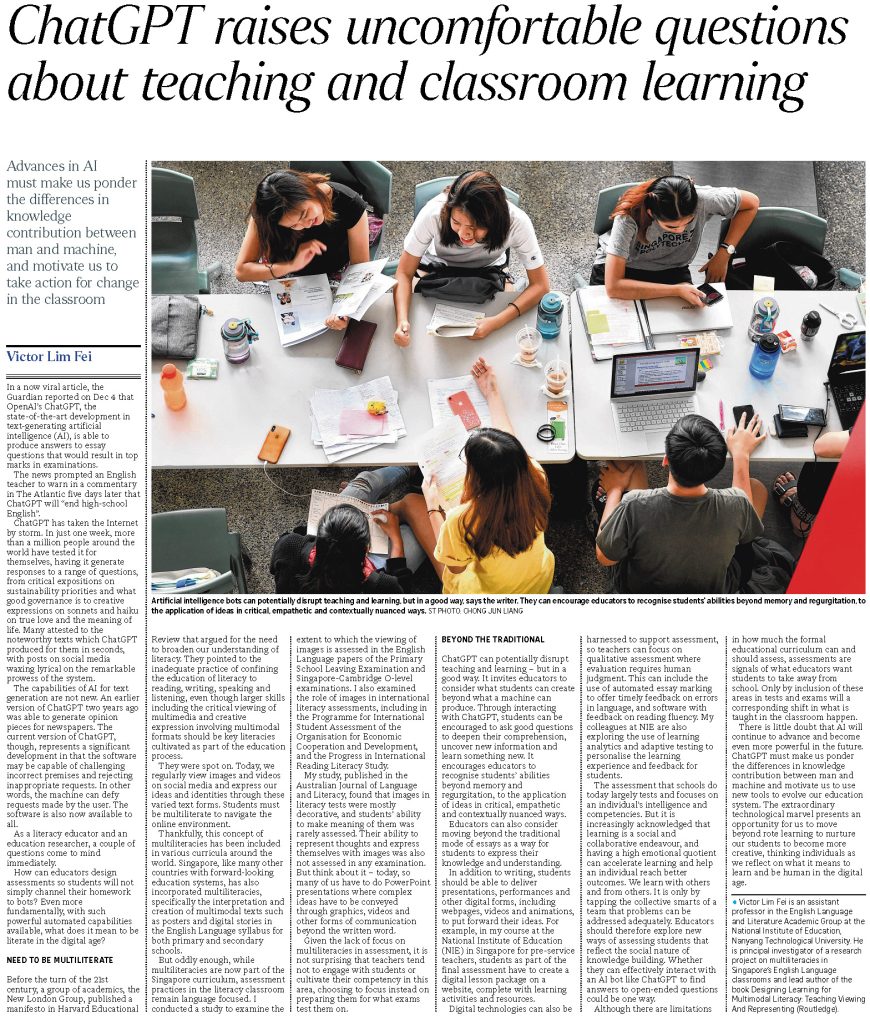
In a previous posting, I wrote about the curiosities on ChatGPT. With the curiosities, come the concerns by the public, including the academics on the disruptions of teaching and learning by ChatGPT. Yet, there are also academics who promote the use of ChatGPT in teaching and learning.
The question is whether ChatGPT could be used to facilitate the delivery of knowledge materials to universities and schools? Here, I will elaborate it based on what I obtained from usage of ChatGPT.
It is important to understand that education plays a critical role in the development of a person and also the society. Education enables individuals to acquire knowledge and skills to help them navigate the complexities of life, make informed decisions, and also pursue their aspirations. It eventually plays a crucial role in social and economic development by helping in the creation of informed and skilled workforce, and also fostering social cohesion and community development.
What is education?
Education is the process of acquisition of knowledge, skills, values, and attitudes. It is achieved through different methods, including teaching, training, research, and practical experience. Education is therefore a lifelong process, and acquiring knowledge will enable individuals to continuously develop their intellectual, social, and also emotional abilities in order for them to attain their full potential in life.
Education can take place in different settings. It could be in formal settings, such as schools, colleges, and universities, where students learn from teachers and mentors; or conducted in informal settings, through self-directed learning, on-the-job training, community-based programs and many other avenues.
What is learning?
Learning is the process of acquiring knowledge or skills through experience, study, or instruction. There are many ways in which we can learn knowledge, including:
- Observation: Learners learn through observation of others and their actions. This is especially true for young children who learn by imitating others, particularly their parents and siblings.
- Experience: People also learn from their own experiences, both on the positive side as well as the negative side. Their experiences provide them with valuable information which will help them in making better decisions in the future.
- Study: Students learn by reading books, attending lectures, and also taking courses. Attending a formal education is the most common way of acquiring knowledge. Yet, self-directed study is also an effective way of learning.
- Practice: People also learn through practices and repetitions. This is particularly true for acquiring skills, such as playing a musical instrument or learning how to speak a foreign language.
- Experimentation: Researchers learn by testing theories and ideas through experimentations. This is a common approach in scientific research, where hypotheses are tested through experiments.
- Collaboration: Many people learn from others by working together and sharing knowledge and ideas. Collaboration is very important in the workplaces, where teamwork and communication are essential for success.
There are many different ways in which we can learn knowledge, but the most effective approach depends on the subject matter, the individual’s learning style, and also the specific circumstances.
Can ChatGPT assist in education?
ChatGPT can assist with education in a variety of ways. As a language model, ChatGPT has access to a vast amount of information on a wide range of topics, including educational content. It has been designed to generate new and unique responses to user inputs. It utilises complex algorithms and natural language processing techniques to generate responses that are appropriate, relevant, and informative.
Amongst the ways how ChatGPT can help with education are as follows:
- Providing information and answering questions: ChatGPT can help answer questions about specific educational topics, such as history, science, math, and more. It can also provide information on different educational systems, educational philosophy, and teaching methods.
- Offering study tips and strategies: ChatGPT can provide tips and strategies for effective studying, such as time management, note-taking, and test-taking skills.
- Recommending educational resources: ChatGPT can suggest educational resources, such as books, videos, and online courses, that can help students learn more about specific topics.
- Providing language learning assistance: ChatGPT can help students learn a new language by providing vocabulary and grammar explanations, language exercises, and other language learning resources.
ChatGPT can also provide guidance on a wide range of topics related to teaching and learning, such as pedagogy, curriculum design, assessment, classroom management, and educational technology. It can also provide resources and suggestions for effective teaching strategies and techniques, such as active learning, differentiated instruction, and formative assessment.
ChatGPT is able to provide informative responses when asked different questions about diverse topics, from philosophy, astronomy, genetics, accounting and many more: you name it.
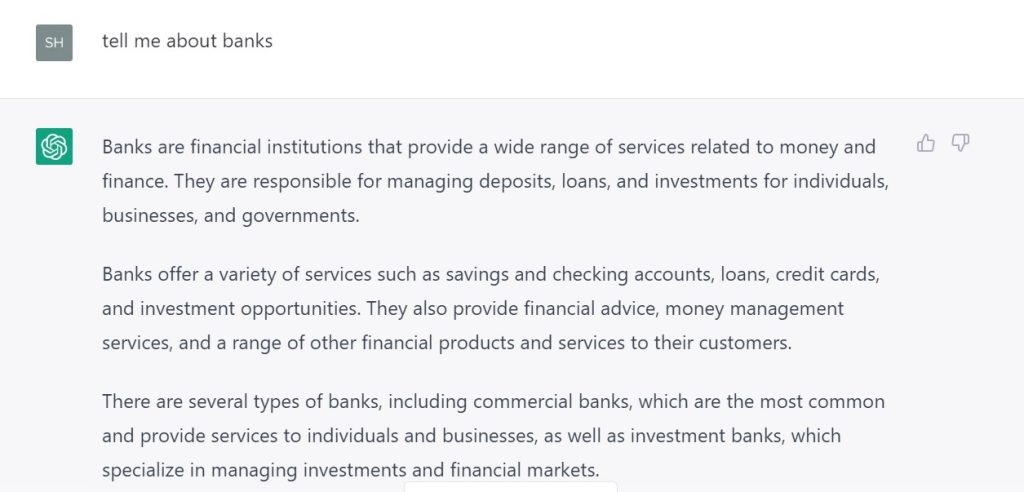
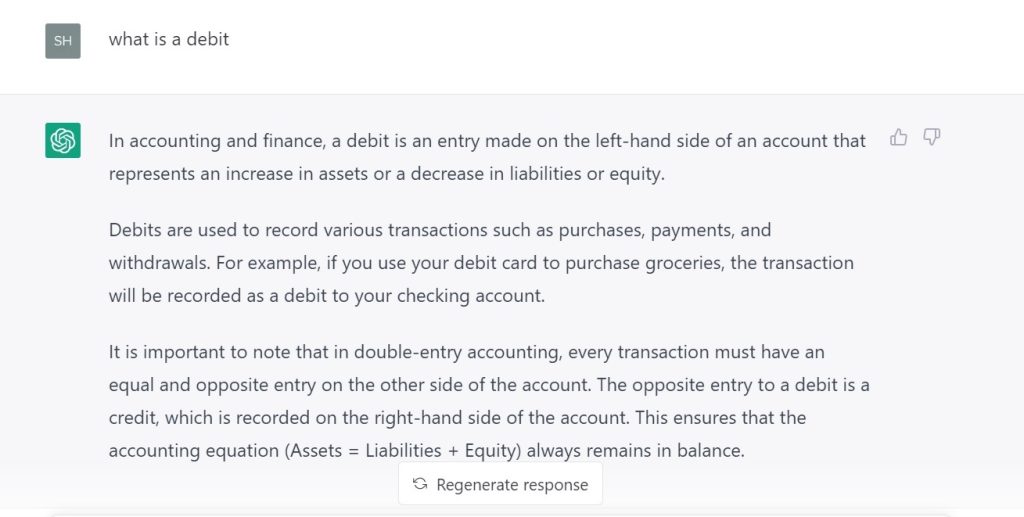
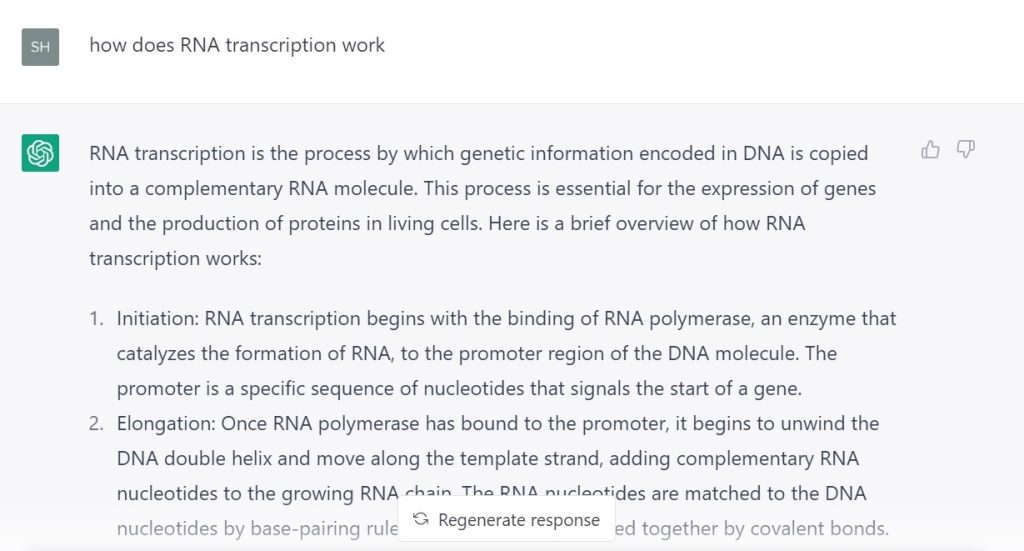
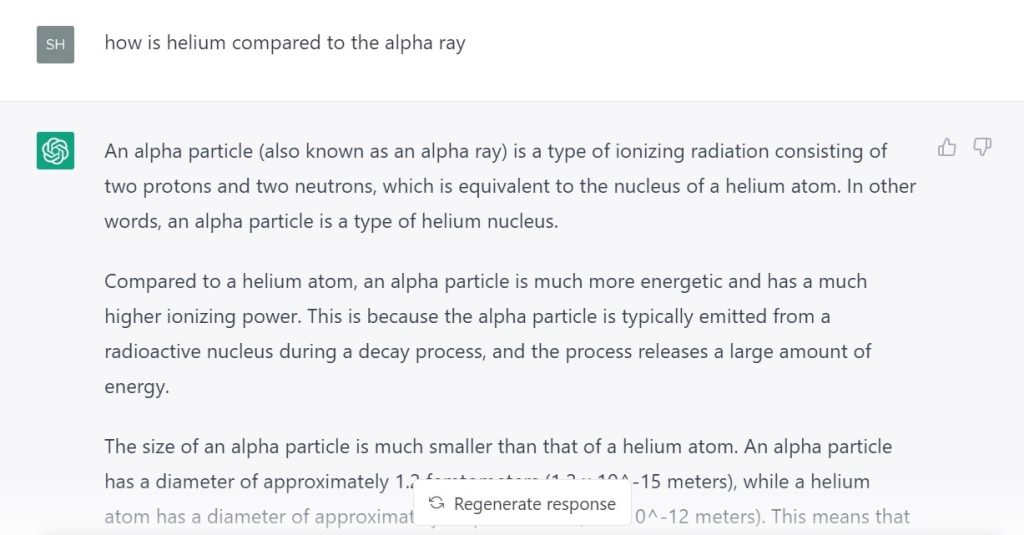
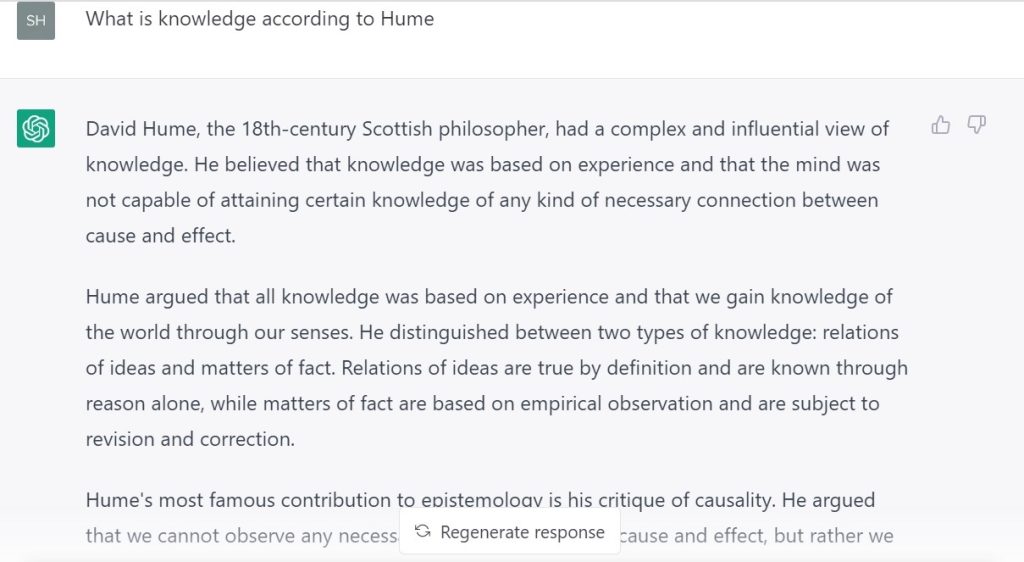
Although ChatGPT can be a useful tool for gathering information and generating ideas, it is important to supplement it with other sources of guidance, such as mentorship, professional development, and collaboration with other educators.
ChatGPT can only serve as a helpful tool for those looking to expand their knowledge or improve their learning experience. As an AI language model, it can provide information and resources to help guide teaching. But, it is not a substitute for a trained and experienced educator who has the expertise to design and facilitate effective learning experiences. It is important to note that teaching is a complex and dynamic process that involves a range of factors, including the needs and abilities of individual students, the context of the learning environment, and the goals of the curriculum.
Effective teaching requires ongoing reflection, adaptation, and a commitment to continuous learning and improvement, which is difficult to achieve through an automated system like ChatGPT.
As discussed in my previous post, ChatGPT applies deep learning combined with natural language processing, unsupervised learning, machine learning and parallel processing. It uses big data as part of its training process and the training data for ChatGPT is sourced from a variety of sources, including websites, books, and other text-based sources, and can amount to hundreds of gigabytes or even terabytes of data. This training data is used to train the model’s artificial neural network and allow it to generate new text that is similar in style, tone, and content to the training data.
Is ChatGPT reliable?
While its approach allows the ChatGPT to generate human-like responses, it does not explicitly hold a knowledge model or ontology in the traditional sense. It means that although it could provide answers to many things, the information it provides may not always be accurate or complete. Due to the absence of proper ontologies of the respective domains of knowledge, it may struggle with tasks that require a more structured understanding of the relationships between entities and concepts. With no proper definitions and relationships between the entities and concepts, there is no real coherence between the individuals and collective concepts described in its answers. Hence, the knowledge content in it may not be accurate, but only depends on the unverified material gathered by the system.
According to Plato, knowledge must be infallible and need to be real knowledge. The tripartite analysis of knowledge placed three conditions for knowledge; it must be true, it must be believed and it must be justified. Propositions that do not fulfill the three conditions are therefore, not knowledge. Unjustifiable knowledge could derail our understanding of things, cause us to make wrong decisions and judgments and even put businesses at risk due to misrepresentation and giving wrong information to people.
There are also concerns that ChatGPT promotes plagiarism, although ChatGPT does not intentionally plagiarize content. As an artificial intelligence language model, ChatGPT has been trained on a vast amount of text from various sources. When generating text, ChatGPT relies on this training data to generate responses, and it may occasionally reproduce phrasing or content from the training data. That being said, ChatGPT may occasionally generate responses that unintentionally resemble content from other sources. Thus, inadvertently appear like plagiarising contents. As such, it is better to verify any information you receive from ChatGPT using other sources.
The final word is that ChatGPT is not a substitute to proper teaching and learning. It is a tool that could complement teaching and learning activities, but need to be used with caution and care.
